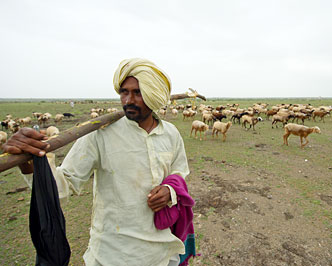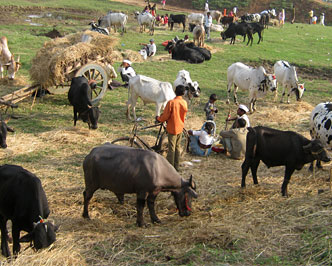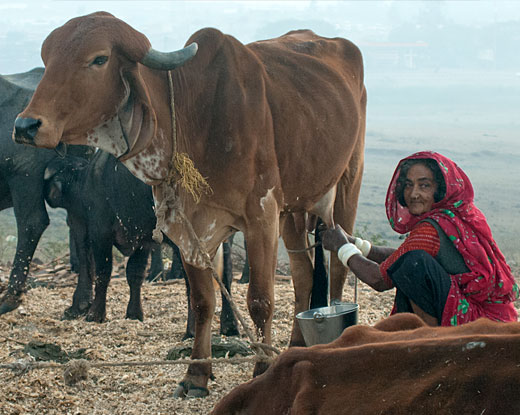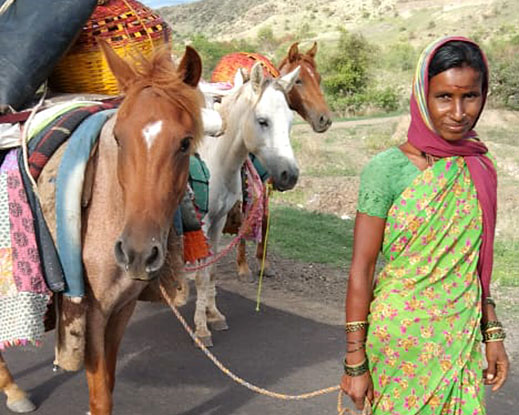The HERDING Research Project
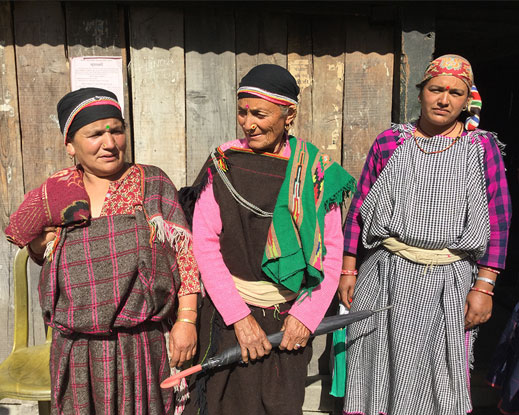
Sustainable development for pastoralist women in India: heritage, dignity and adaptations in times of rapid change
Anthra is collaborating with the University of Leeds and the Centre for Pastoralism in a study with and for women from Pastoral communities in India
India has a wide range of ecosystems that support mobile animal husbandry and is home to well over 30 million pastoralists. There are many challenges to pastoralists’ livelihoods, including changing patterns of land use, and pressures to become settled. Many pastoralists are becoming more vulnerable to poverty, and changes are affecting men and women differently.
The HERDING project works with four communities of Hindu and Muslim pastoralists in Gujarat, Maharashtra and Himachal Pradesh. It studies the complex transformations of women’s lives, focusing on the shared heritage that links them to the land and their animals. It asks how these women use their religious and cultural heritage to sustain livelihoods of dignity, both within and outside their traditional livelihood of mobile pastoralism. The project provides an opportunity for pastoralism women to speak about the roles and importance to the University m of religion, gender, culture and nature. It aims to advance a view of sustainable development that honours pastoralists’ heritage, in support of India’s Sustainable Development Goal programming.
Project partners are the University of Leeds in the UK, and in India the Centre for Pastoralism and affiliated NGOs. Anthra , Kutch Mahila Vikas Sanghatna, SET, and Baijnath Kisan Sabha who are specialists in pastoralism, land rights, and women’s well-being and empowerment.
The HERDING project is funded by the British Academy’s Sustainable Development research programme. The programme focuses on the importance of heritage and dignity for ‘sustainable development’ in support of the global pledge to ‘leave no-one behind’, made when the Sustainable Development Goals were launched in 2015.
For further details, please contact the Principal Investigator and Team Leader, Professor Caroline Dyer (c.dyer@leeds.ac.uk).


